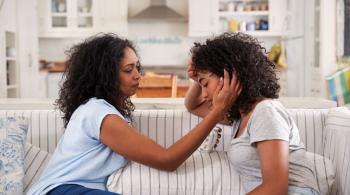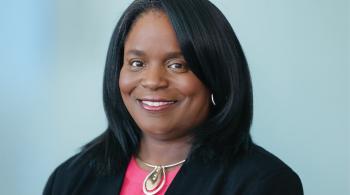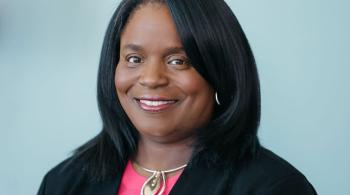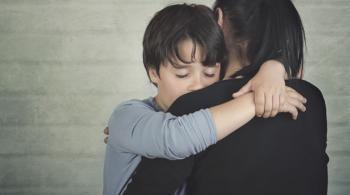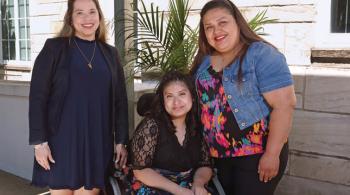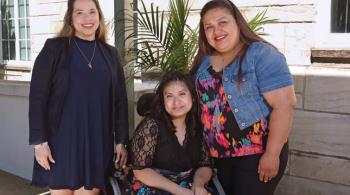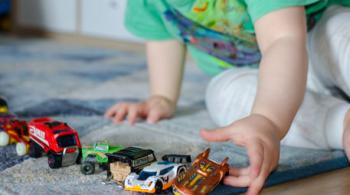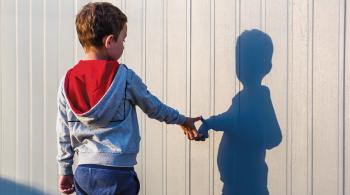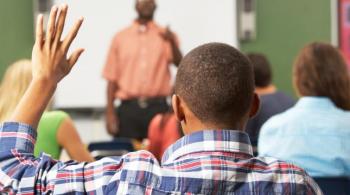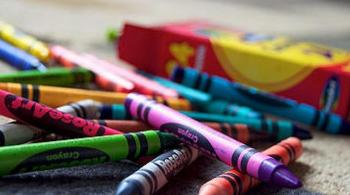On the latest episode of Your Child’s Brain we discuss the impact of trauma on children’s brains. With:
Joan Kaufman, PhD, Director of Research Center for Child and Family Traumatic Stress Kennedy Krieger Institute Professor of Psychiatry Johns Hopkins School of Medicine
Abena Brown-Elhillali, PhD, Supervising Clinical Psychologist Center for Child and Family Traumatic Stress Kennedy Krieger Institute.
View Episode Transcription
Dr. Abena Brown-Elhillali (AB): Welcome to Your Child's Brain, a podcast series produced by Kennedy Krieger Institute in partnership with WYPR. I am Dr. Abena Brown-Elhillali. I am a clinical psychologist at the Traumatic Stress Center here at Kennedy Krieger Institute. I am joined today by Dr. Joan Kaufman.
Joan Kaufman (JK): Hi, I am the Director of Research at the Center for Child and Family traumatic stress and also a professor in the Department of Psychiatry at Johns Hopkins. This podcast is on the impact of trauma on the brain. Abena, when we talk and we refer to trauma, what kind of experiences are we talking about?
AB: We're talking about any experience that impacts a child's life in a way that can have lasting effects on their emotional functioning, their relationships, and their overall development. This can include accidents, it can include neglect, and different categories of abuse. All of these, when experienced by child, can result in notable changes in brain functioning. Joan, can you talk to us a little bit about the effects of trauma on the brain.
JK: Most of the research that we know on the effects of trauma on the brain have involved children, adolescents, and adults who meet criteria for post-traumatic stress disorder or PTSD. The most highly replicated findings of the effects of trauma on the brain include; atrophy of the hippocampus, a key structure involved in memory and putting the brakes on the stress response, over-activity of the amygdala, a brain region involved in emotion and threat processing, under-activation of key prefrontal brain regions that can help regulate emotions and behavior, and alterations in the connectivity between these brain regions and other regions of the brain.
AB: When parents hear this type of information, I imagine that this can be really concerning, especially if there has been a trauma in their family and their child has been directly affected by that trauma. One of the questions I would have, and I'm a parent as well, is are these changes that you just discussed inevitable and are they permanent?
JK: No and no. The negative impact of trauma on the brain, on behavior, on child's functioning are not negative. We know there are many things that can promote resilience, recovery. The most important thing is positive support from parents and other loved ones and family members. One of the things we also know is that treatment can reverse these brain changes as well. Trauma-focused cognitive behavior therapy, the most widely disseminated evidence-based treatment for children with trauma, as well as mindfulness mind-body interventions have also been shown to lead to positive brain changes that promote health and recovery. Do you want to talk a little bit about ways parents can support children after a trauma to minimize the effects?
AB: For parents, the best advice is actually a reminder. The reminder is that there are professionals that are available to help. While there tends to be a stigma around trauma and many times a stigma around seeking mental health treatment and the experience of a trauma can be really jarring for families, there are professionals who are experienced and trained to help your family. Rather than avoiding or delaying treatment, which is what happens many times, it's really best to seek treatment earlier rather than later.
JK: Can you talk about some of the other ways that parents can support children, maybe in the immediate aftermath of the trauma. Is it best to keep children from their regular routines and keep them home from school? Should they talk to them about what happened? Should they make the child talk about what happens? What if the child's extra needy? How should they respond?
AB: Basically, it's best to keep the routines as consistent as possible. I say basically because, of course, everyone's situation is different and sometimes it really is challenging to keep those routines that were once placed before the traumatic experience occurred. But as much as possible, we want a child to be able to go back to school. We want them to be able to continue with their regular routines as long as it is safe for the child. Sometimes without having the support that is needed in that situation then a child can become re-traumatized. In most cases, we do want people to go back to their regular routines and for families to be as supportive as possible, and making sure that a child can continue with their regular routine. If that doesn't happen, what we often see is school avoidance. Because a child ends up becoming so anxious about what has occurred and then avoidant of continuing with their regular routine that they end up building up more anxiety about the situation and avoiding school all together.
JK: We had started to talk about treatments that could reverse the effects on the brain and help promote resilience and recovery. One that has been studied is trauma-focused cognitive behavior therapy. Do you want to tell the audience what TF-CBT or trauma-focused cognitive behavior therapy, some key aspects about it, so if a parent were to know what to expect?
AB: Trauma-focused cognitive behavioral therapy or TF-CBT for short is an evidence-based, trauma-informed treatment. It's especially designed for children ages 3-18. TF-CBT is primarily a talk therapy that helps children who first develop these pre-requisite coping skills and want to make sure that a child has a good understanding of what their triggers may be and how to cope with those triggers. We then help the child to create a narrative that's meant to help them to identify and then correct these cognitive distortions or misbeliefs about the traumatic experience.
JK: With a common one, often times kids blaming themselves that something bad happened and by telling the story and what they're thinking about, you can then challenge that so they don't have that sense of guilt and responsibility.
AB: Absolutely. Mind-body interventions, on the other hand, are those interventions that primarily focus on strategies that are incorporating our bodies and treatments. These strategies include yoga and mindfulness, various relaxation strategies, and biofeedback. We typically refer to these treatments as complimentary and alternative treatments, and yet growing evidence shows the effectiveness of mind-body interventions both in conjunction with and in the absence of more conventional talk therapies. For trauma especially, research has shown the effectiveness of using these mind-body strategies as part of treatment. We've talked a lot about the effects of trauma on a child's brain. Joan, you shared so much helpful information for our listeners. Are there any take-home messages that you'd like to leave for the audience?
JK: The most important take-home message I always like to leave whenever I give any form of a talk which is, a history of trauma or other adversities need not lead to bad outcomes. There's many things that we know that can tip the scale in favor of positive outcomes, promote resilience, recovery. Parents are absolutely a key integral part to children's recovery. We have a lot of effective treatments that really make a difference. As you say, not to let stigma or concerns like that stop someone when it's clear that those experiences have started to interfere. Any take-home messages you wanted to add for the audience?
AB: I would definitely echo what you just said Joan. Trauma does not have to be the end of our life stories, especially for children. There is growth and healing that can result from trauma. We also know from many of the studies of brain imaging is that there's lots of brain plasticity that is evident for children's brains. All of the different changes in brain structures are not set in stone, especially when treatment is sought early and with the right provider that engages both the caregivers and the child. [MUSIC] You've been listening to Your Child's Brain. Your Child's Brain is produced by Kennedy Krieger Institute in partnership with WYPR and producer Mark Gunnery. Please join us next time as we examine the mysteries of Your Child's Brain. [MUSIC]


